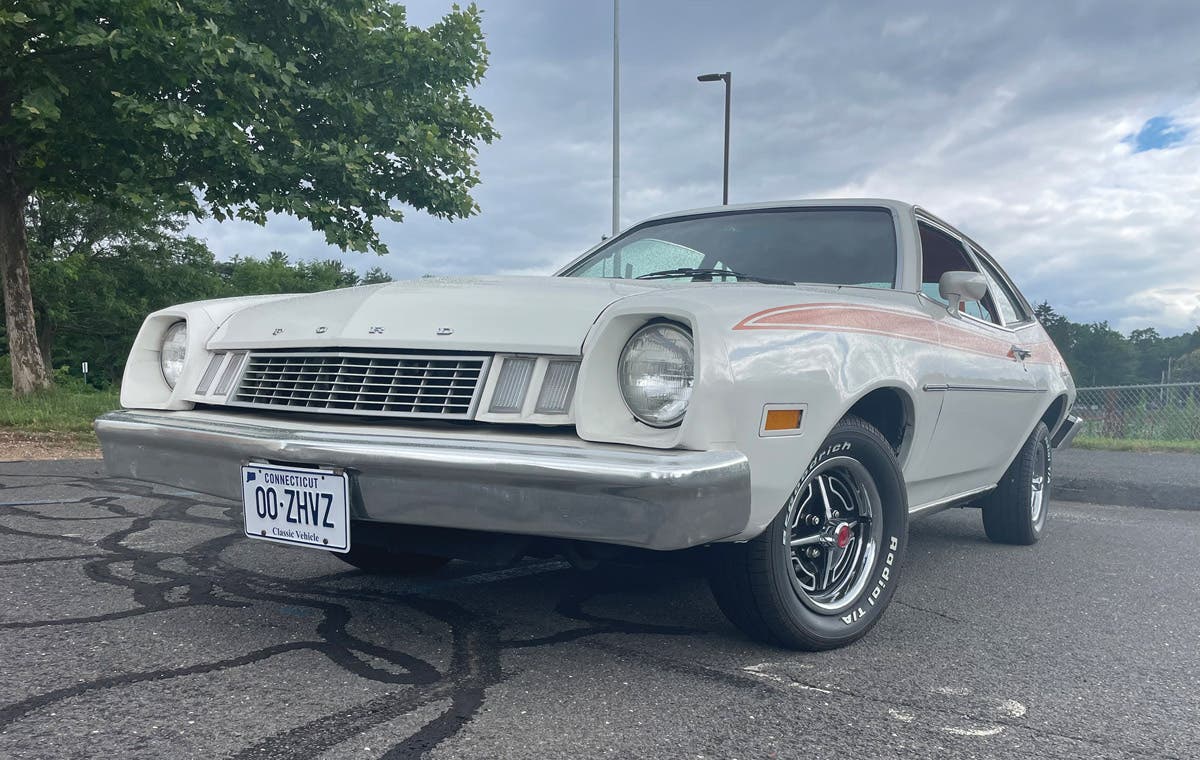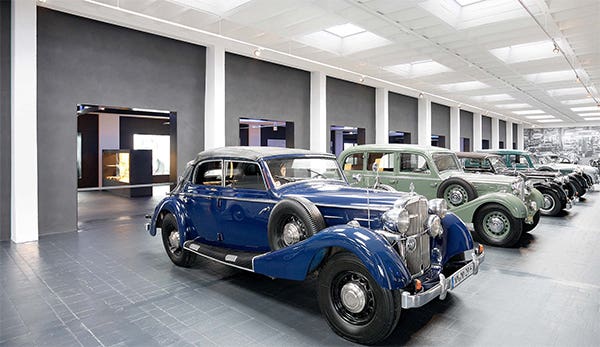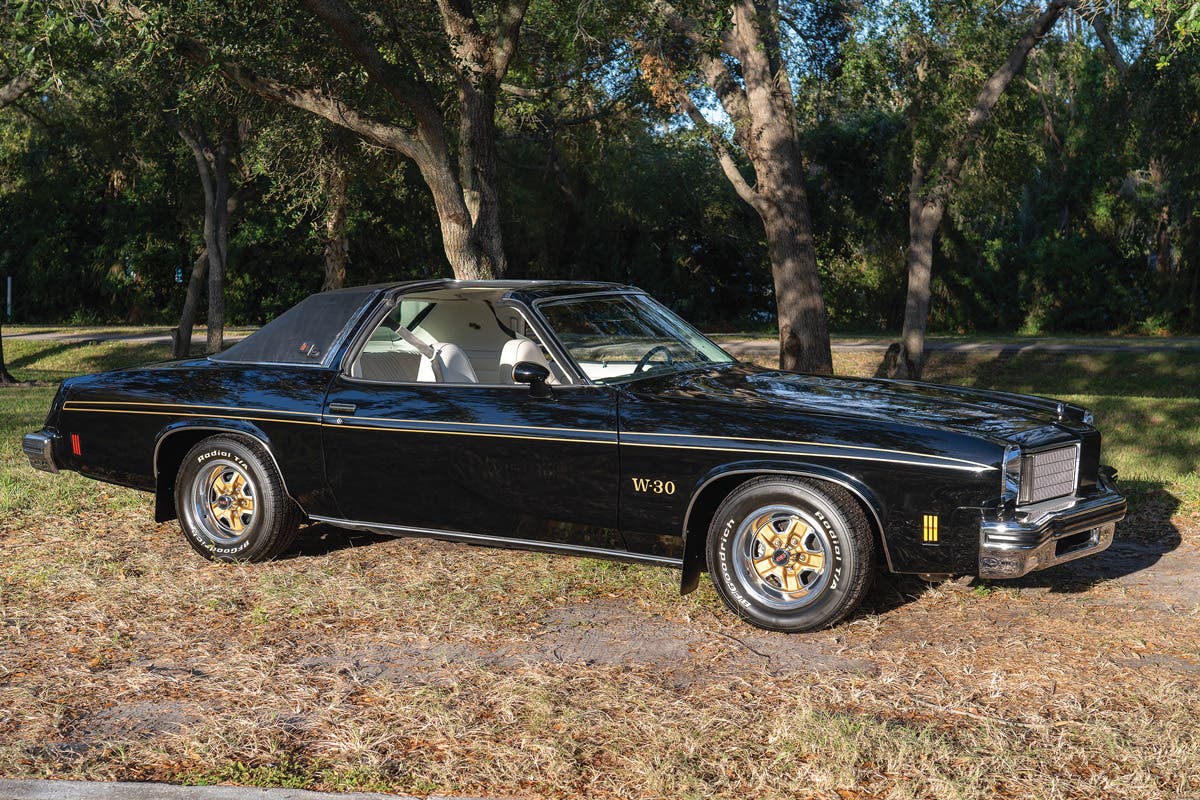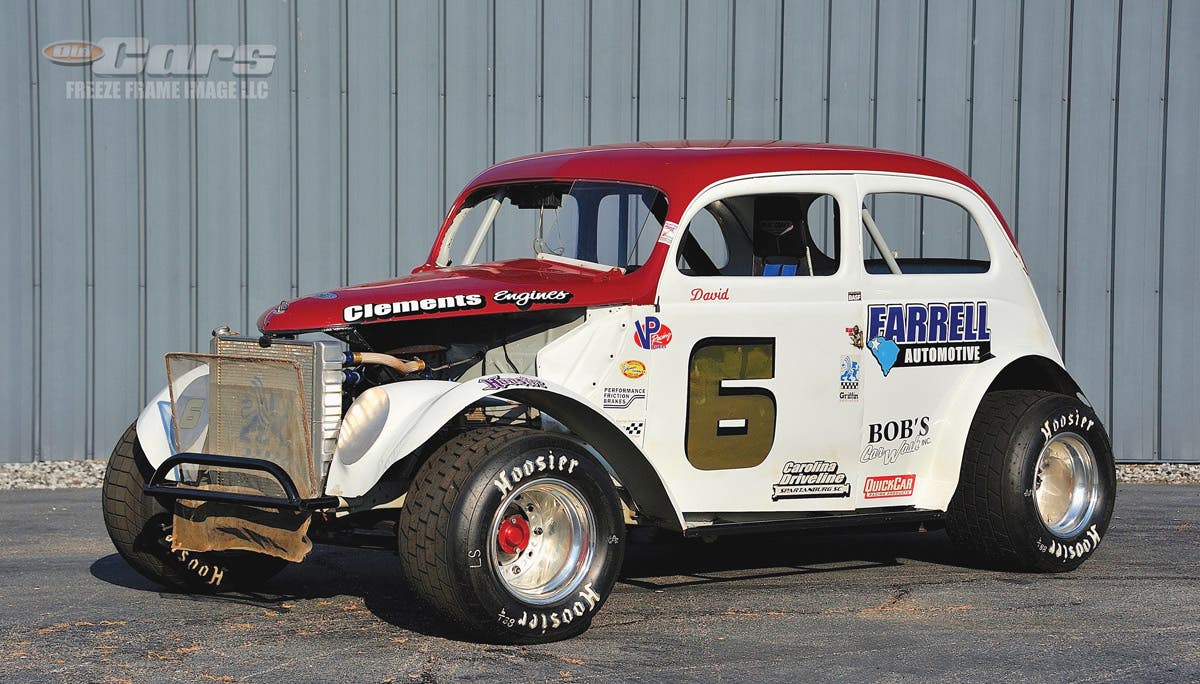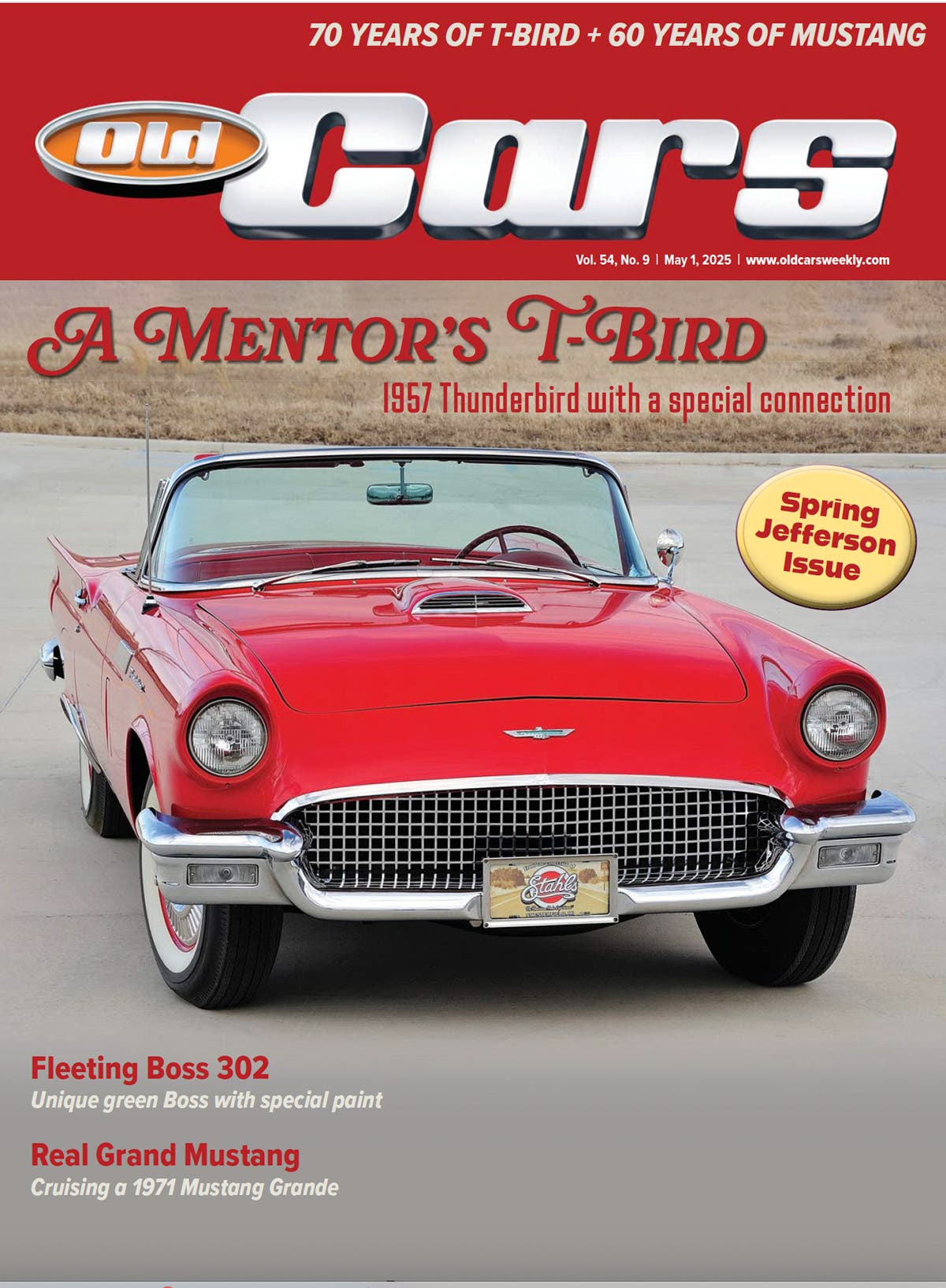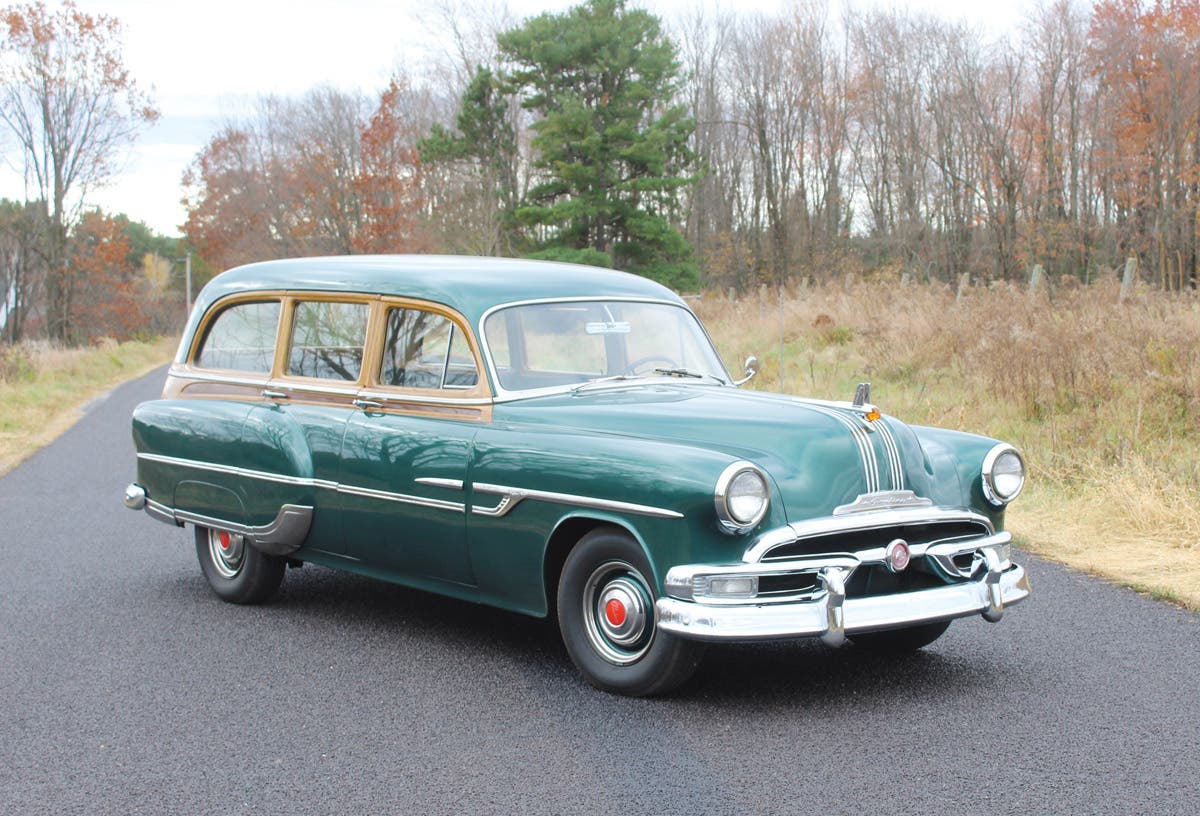Larry Batton of Auto Appraisal Group speaks
during a tour of the LeMay Museum in Tacoma,
Wash. Batton oversees a network of about 135
independent appraisers and is an expert in appraisal
research and valuation.
Larry Batton has a standard line that he gets to pull out often, and it’s usually followed with a hearty laugh.
“I always tell people I ain’t in the happy business,” Batton says with a contagious chuckle. “I’d like to be your friend, but not the kind of friend who necessarily tells you everything you’d like to hear.
“Actually, I have made a lot of friends in this business, but I make friends by telling people the truth.”
After another laugh, Batton acknowledges that there is only one problem with being brutally honest when it comes to performing appraisals on collectible automobiles. “People will pay you to lie to them,” he says. “But they don’t always want to pay you to hear the truth!”
If nothing else, Batton appears to have a clear understanding of the quirks and fickleness of the auto appraisal business. As the founder of Auto Appraisal Group, a nationwide network of appraisers based out of Charlottesville, Va., he’s pretty much seen it all in his four-plus decades of involvement in the old car hobby.
And there are almost no car-related subjects that are off limits when he gets the conversation rolling. Auctions, restorations, crazy customers, swollen egos, TV coverage, modern technology, the economy — it’s all fair game when you get Batton talking about his livelihood. He’ll tell you pretty much whatever is on his mind, but he insists he’s never suggested how a customer should spend their money.
“Over all these years, I have never told a person to buy a car or not buy a car,” he said. “It’s not my job to tell you what to do with your money. It’s my job to put a value on the car, or give you a value range for the car. Our company does not buy or sell cars. Our only job is to do appraisals, and because of that we can be totally objective.”
Actually, the formula that the Auto Appraisal Group uses to remain objective is probably one of the more misunderstood areas of the company’s appraisal process. The guys who come out and look at the cars — and there are more than 135 certified company experts in about 40 states — don’t put a value on the cars. The agents simply gather information using standard forms and grading criteria and the value of a vehicle then gets determined based on the hundreds of thousands of vehicle values and past appraisals stored in a central database.
“We attend every major auction event in the U.S. every year and we have for 20 years … and we go not only to record what the cars sell for, but to record the condition of the cars,” Batton noted. “The agents are not appraising the cars. They are simply gathering information and sending it back to the home office.
“Today, there’s such a science to doing an appraisal. If you have one man doing it, he has a right to his opinion, but if he doesn’t have the same science and methodology, it’s just one man’s opinion...
“All of our guys are tested, and they are all independents … Not only do we gather information, but we gather photography, and we have photography of every car we’ve appraised since 1989. And we see the same cars over and over sometimes, two or three years later.”
And being able to use technology to house and access all of the past appraisals the company has done in the past 20 years is one of the biggest advances in the business, Batton added. In addition to using devices like paint meters that can measure the thickness of a paint job and give clues to how much paint a car might be hiding underneath, agents are often able to do quick searches on VIN numbers and data plates in a matter of seconds.
“It’s so much easier with technology and computers. Our job is really a lot easier to do. It’s a lot more organized and we can go back and see what we did six months ago, 12 months ago. And we can give people graphs that show what’s been happening. ‘Here’s what this car sold for five years ago, 10 years ago, and here’s what the market is doing.’”
One of Auto Appraisal Group’s busiest and most interesting times of the year will be coming up later this month when the annual Scottsdale, Ariz., auction bonanza takes place. Agents frequently get called on to appraise cars before and after big auctions, but trying to do a thorough investigation of a car at an auction venue is difficult.
“When we’re in Scottsdale we try to slow up the buying process,” Batton said. “It takes time to do an appraisal and you can’t just walk up to a car [and appraise it]. It’s not that easy. Auctions are really the hardest time to do the appraisal because you can’t start the car and you can’t drive the car.”
On the other hand, the growth of the annual January spectacle and the TV blitz have certainly benefited the appraisal business, Batton said — even if sometimes the hammer prices are misleading to the general public.
“Absolutely it’s helped us,” he said, of the TV coverage. “It’s the start of the season and it sets the pace for the rest of the year. Typically, how they do in Scottsdale sets the pace for the market for the rest of the year.
“But now, everybody is on TV! Some of these things should be like professional wrestling. They should be on SciFi Channel! It’s crazy. It used to be only Barrett-Jackson was on TV, now everybody is on.”
Suffice it to say, Batton can fill your ear with Scottsdale stories and tales from the ringside seat he has had over the years. And he’ll happily cover a few other topics, too:
More Scottsdale:
“I go out there and go out to a restaurant and can’t get a seat, ’cause it is so packed with everybody in town, and I have to sit at a bar to wait for a table. And I’m waching [the auctions] on TV and the cars look 10 times better on TV than in person! I think, ‘Wow, I don’t remember that car looking that good!’ They have hundreds of lights on these cars. And you know they are not all perfect [laughs].”
Auction prices:
“Now, if a person paid $300,000 for a car in Scottsdale, does that mean all cars like that are worth $300,000? No! We’re really busy with people who call after Scottsdale and see what the cars sold for and they want to see what their car just like it is worth… Of course, they see $300,000, but the car didn’t really sell for that! That’s with the 10 percent premium, so it really sold for $270,000. And then there was a buyer’s premium. So what did it really sell for? $240,000? There’s a big difference there. What did the seller get?”
Trailer queens:
“The cars that you see that sell for $1 million or $800,000 or $500,000 — they don’t drive those cars. So many Corvette people are like that. They get an older Corvette to restore and show it, but they don’t drive it. They get a new Corvette and drive that… At shows, I see guys put an old battery in a Corvette that doesn’t work because it’s correct. You can’t even start the car with it, but it’s correct! It’s pretty crazy when you think about it.”
Restorations
“Today, restoring a car is financial suicide, because people get more money into the car than it’s worth. Now, if they love the car, that’s fine, you can’t put a value on love. But it costs a lot of money to restore a car.
“About 10 years ago, you could go to a parts store and buy a bunch of parts and then take it to Barrett-Jackson and make $100,000 or $200,000. Today, trying to restore a car and make money on it is very, very hard.”
The Harold LeMay collection
“That was the largest collection we’ve ever done. In that case we had to appraise over 3,000 cars. That was the largest collection in the world. It took us over six months to perform the appraisal. We had to go all over the place … Harold loved cars. He was a true collector of cars. He didn’t buy cars to make money on them. He only bought cars to collect them and preserve them.
“The hobby is supposed to be for the love of the car, and what’s happened is that over the years cars grew in value and people try to use them as assets. It can take away the true love of the car because cars are made to be driven.”
Insurance appraisals
“Insurances companies send us a lot of business, so people can get their cars insured properly. An appraisal is documentation if it’s a certified appraisal, like ours.
“You want to get an agreed-value policy so you have your car insured properly, and there are a lot of companies out there that do that, but you have to read the small print sometimes to understand that.”
2011 and beyond
“I think it’s going to be a rebound year for the car industry, because we’ve had a lot more sellers than buyers recently, and I think it’s probably going to change this year. It may be slow, but it’s going to go toward the positive. Last year sales were down [in Arizona], but there were more auctions … What’s happening is the mediocre cars are not really selling, but the good cars, there is always going to be a good market for the good cars. Good condition with good provenance and documentation — those are the cars that will continue to go up in value.”
AAG seminars and certification
“Our average independent agent has over 15 years in the automotive industry. They have to come to one of our schools and it takes a minimum of four days to get certified. And then we have continuing education programs for our agents six times a year.”
For more information on the Auto Appraisal Group, and the company’s seminars, visit www.autoappraisal.com
MORE RESOURCES FOR CAR COLLECTORS FROM OLDCARSWEEKLY.COM



